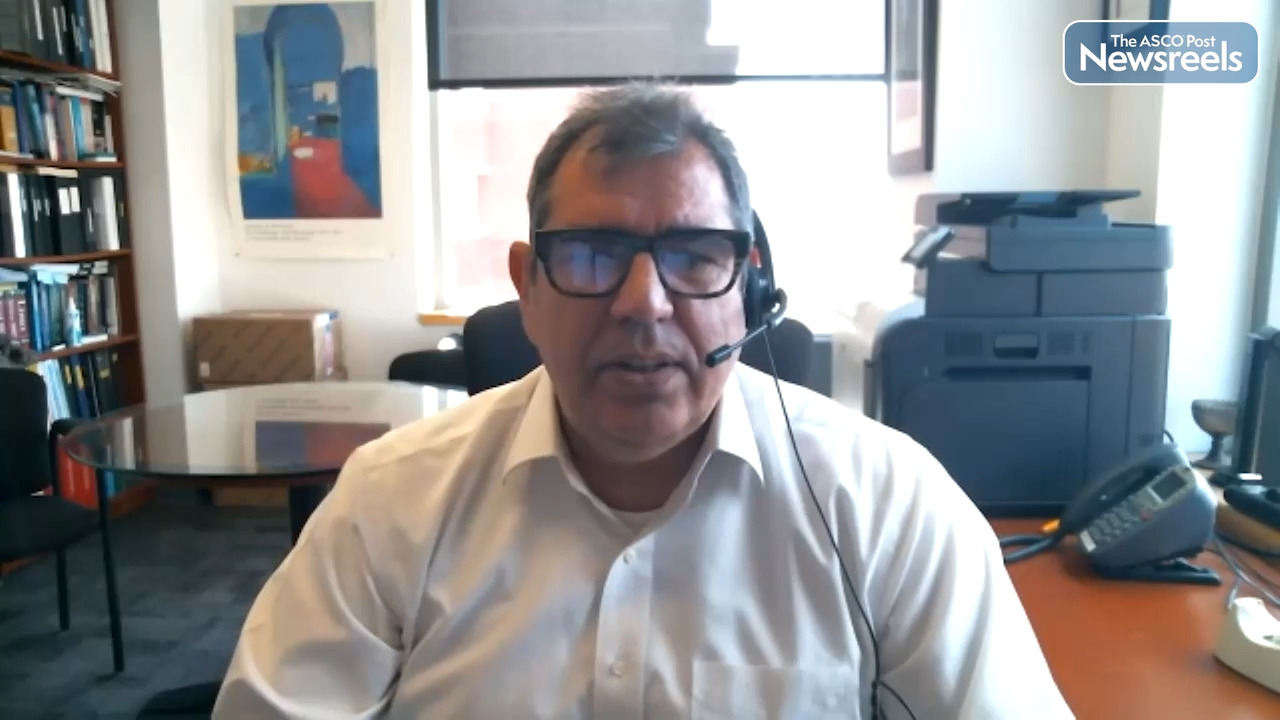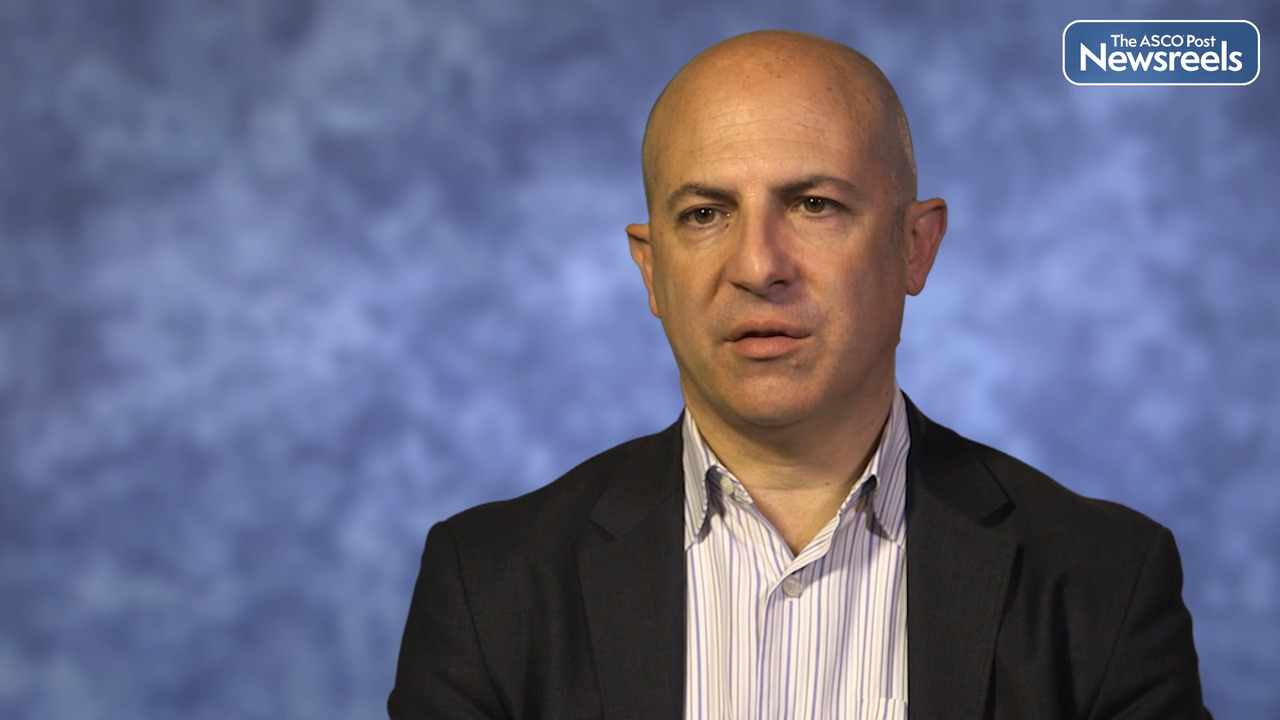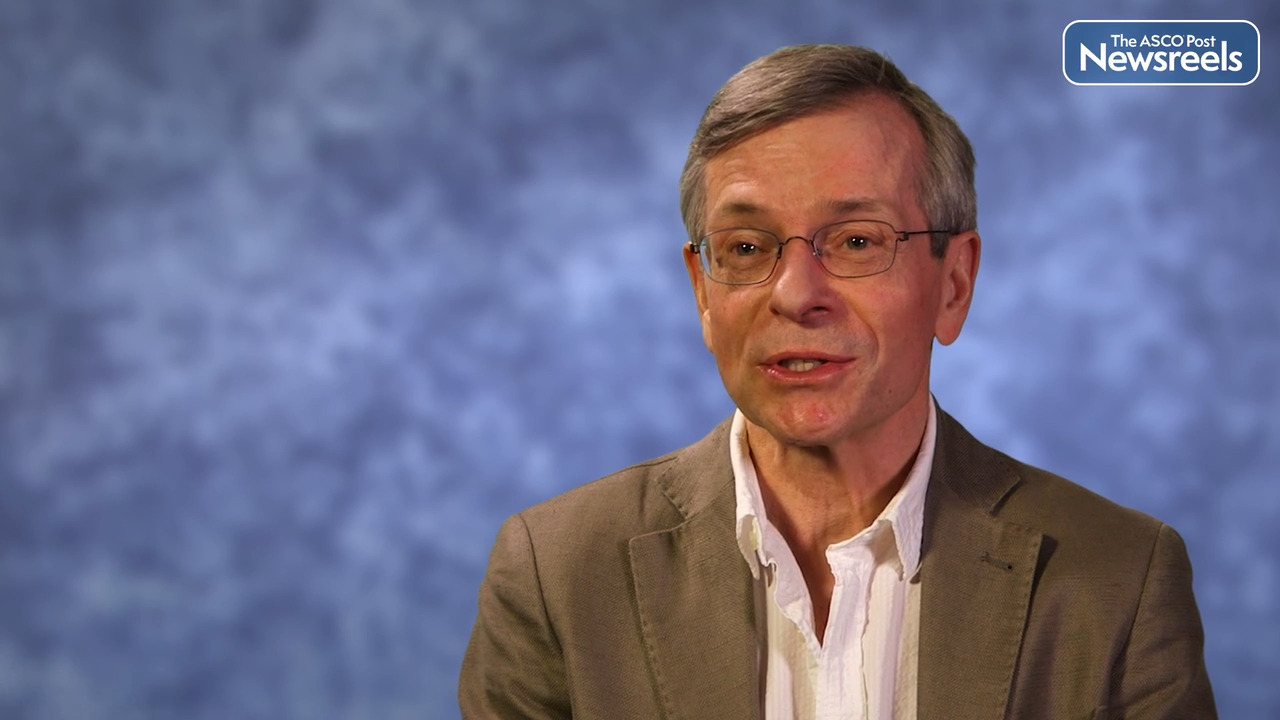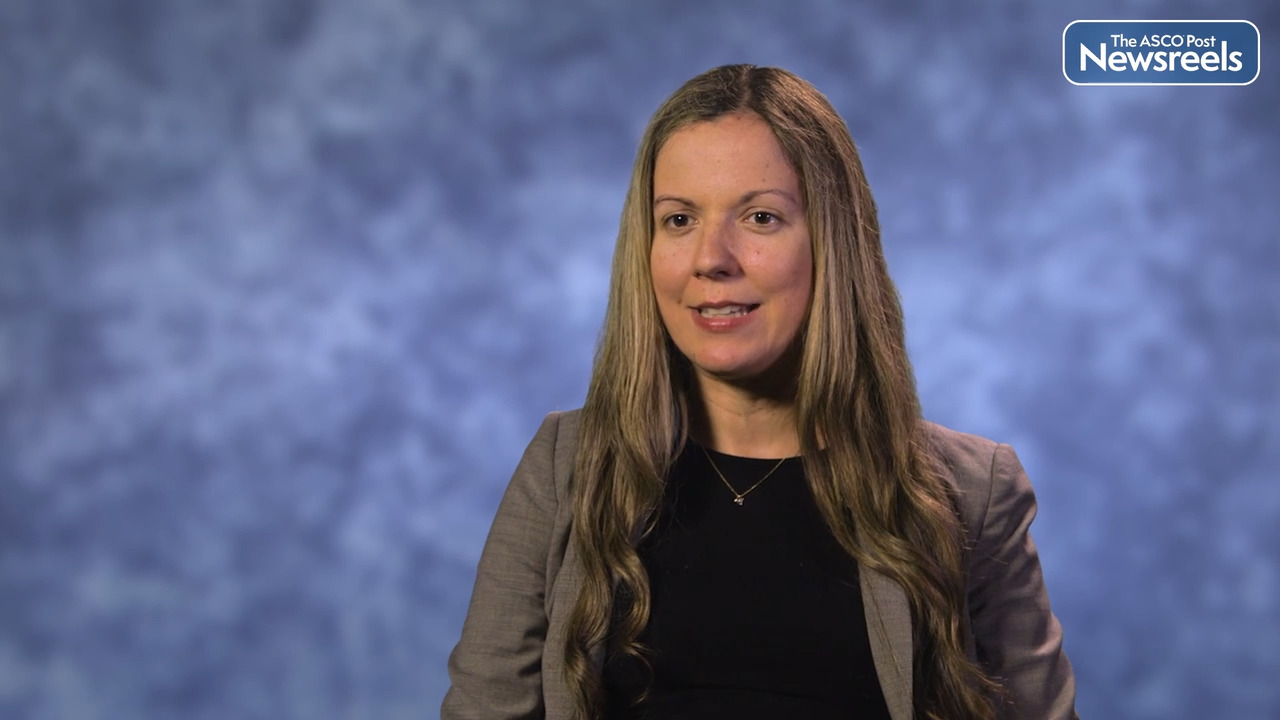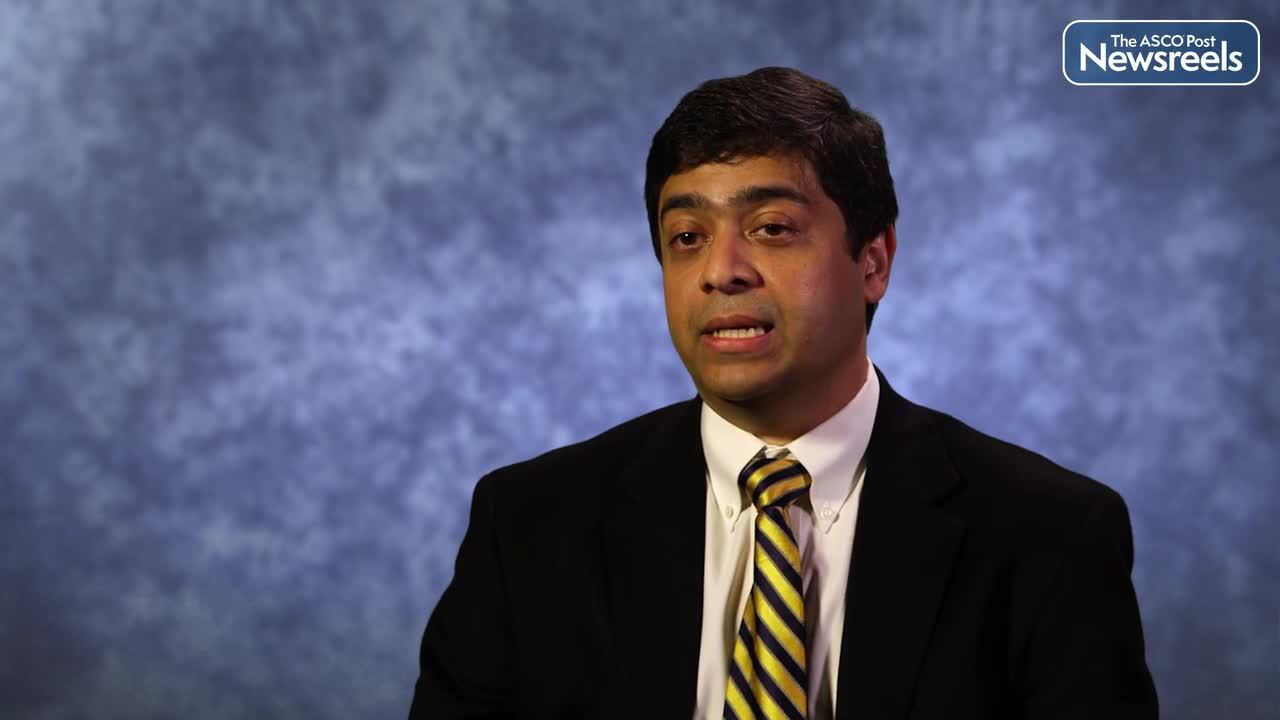Timothy A. Yap, MBBS, PhD, on Ovarian, Breast, Pancreatic, and Prostate Cancers With Genetic Mutations: A First-in-Human Trial of AZD5305
AACR Annual Meeting 2022
Timothy A. Yap, MBBS, PhD, of The University of Texas MD Anderson Cancer Center, discusses results from the PETRA study, a first-in-class, first-in-human trial of the next-generation PARP1-selective inhibitor AZD5305 in patients with BRCA1/2, PALB2, or RAD51C/D mutations in advanced or metastatic ovarian cancer, HER2-negative breast cancer, pancreatic, or prostate cancer. Target engagement was demonstrated across all dose levels, and antitumor activity was observed in selected tumor and molecular subtypes.
The ASCO Post Staff
Nickolas Papadopoulos, PhD, of the Sidney Kimmel Comprehensive Cancer Center, discusses early detection as the key to reducing cancer mortality and the lack of tests for many malignancies. Liquid biopsies have the potential to screen for various tumor types, albeit with varying levels of sensitivity. Dr. Papadopoulos discusses his research on such blood tests, following patients prospectively to find the best combination of genetic and epigenetic biomarkers to increase sensitivity (Abstract PL02).
The ASCO Post Staff
Zev Wainberg, MD, of the University of California, Los Angeles Medical Center, discusses preliminary data on the safety and efficacy of TTX-030, an anti-CD39 antibody, in combination with budigalimab and FOLFOX for the first-line treatment of locally advanced or metastatic gastric or gastroesophageal junction adenocarcinoma. The study suggests the regimen may prove to be of benefit as a first-line treatment, regardless of combined positive score status (Abstract CT015).
The ASCO Post Staff
John B.A.G. Haanen, MD, PhD, of the Netherlands Cancer Institute, discusses findings from a phase I study designed to test the safety and efficacy of the CARVac (CAR-T cell-amplifying RNA vaccine) strategy to overcome poor CAR T-cell stimulation and responses in patients with CLDN6-positive advanced solid tumors. Men with testicular cancer in particular showed encouraging responses. Overall, some patients showed long-term CAR T-cell persistence more than 150 days post infusion. Partial responses seemed to deepen further over time (Abstract CT002).
The ASCO Post Staff
Priscilla K. Brastianos, MD, of Harvard Medical School and Massachusetts General Hospital, talks about her efforts to better understand how brain metastases evolve genomically and to test such agents as abemaciclib, paxalisib, and entrectinib, which may stop their growth. Palbociclib, a CDK inhibitor, has already shown potential benefit. A national cooperative group trial is underway in multiple centers to identify novel treatments for patients with brain metastases, who typically have a poor prognosis (Abstract SY38).
The ASCO Post Staff
Vivek Subbiah, MD, of The University of Texas MD Anderson Cancer Center, talks about innovative design of clinical studies that may help demonstrate clinical benefit in precision medicine and advance treatment to deliver the right intervention to the right patient at the right time (Abstract DC06).
